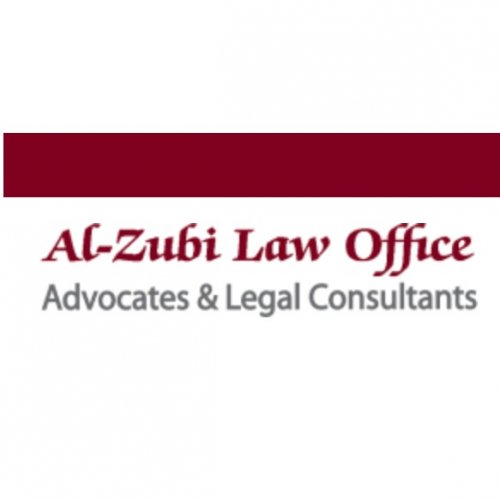Best Licensing Lawyers in Palestine
Share your needs with us, get contacted by law firms.
Free. Takes 2 min.
Or refine your search by selecting a city:
List of the best lawyers in Palestine
About Licensing Law in Palestine
Licensing law in Palestine governs the issuance and regulation of licenses required for various activities and businesses within the region. This includes, but is not limited to, business licenses, professional licenses, and specific operational permits. These laws ensure that entities comply with national standards, maintain public interest, and adhere to regulations set forth by Palestinian authorities. The licensing system in Palestine aims to create a structured legal framework to facilitate economic activities while safeguarding public interests.
Why You May Need a Lawyer
Individuals and businesses may need legal assistance with licensing in several scenarios. First, understanding the specific licensing requirements and processes can be complex, involving multiple governmental bodies and legal frameworks. Legal expertise can help navigate this intricacy. Secondly, businesses facing license applications, renewals, or modifications might encounter challenges such as legal disputes, procedural errors, or non-compliance issues. Lastly, if a license is revoked or denied, legal representation can be pivotal in appealing the decision or negotiating terms with regulatory authorities.
Local Laws Overview
The framework of licensing laws in Palestine is shaped by various local regulations and administrative guidelines. Key aspects include the requirement for businesses to obtain the necessary licenses before commencing operations, adherence to professional licenses for certain occupations, and compliance with environmental, health, and safety standards relevant to licensing. Furthermore, the laws stipulate clear procedures for application, renewal, modification, and revocation of licenses, with specific penalties for non-compliance. Understanding these components is crucial for smooth legal adherence.
Frequently Asked Questions
What types of licenses might I need to operate a business in Palestine?
This depends on the nature of your business. Generally, you may need a general business license, sector-specific licenses, and permits related to health, safety, and environmental compliance.
How can I apply for a license in Palestine?
Applications are typically made through the relevant governmental department or authority responsible for the specific type of license. It usually involves submitting required documentation, paying fees, and, in some cases, an inspection or approval process.
What are the common challenges in obtaining a license in Palestine?
Challenges may include bureaucratic delays, inadequately completed applications, unclear regulatory guidelines, and meeting specific sectoral compliance requirements.
Can my license application be denied?
Yes, applications can be denied if they do not meet the necessary requirements, fail to provide complete documentation, or do not comply with legal standards. An appeal process is usually available for denied applications.
How long does it take to get a license?
The timeframe varies depending on the type of license and the complexity of the application. It can range from several days to a few months.
What should I do if my license is revoked?
You should seek legal advice to understand the reasons behind the revocation and explore the possibility of appealing the decision or reapplying after addressing the identified issues.
Do I need a lawyer to apply for a license?
While it is not mandatory to have a lawyer, legal assistance can help ensure your application is correctly completed and increase the chances of a successful outcome by navigating legal complexities.
Are there specific licenses for foreign businesses in Palestine?
Yes, foreign businesses may require additional permits or partnerships with local entities. It is advisable to consult with a legal expert familiar with international business laws in Palestine.
What happens if I operate without a license?
Operating without a license can result in penalties, fines, and the potential closure of the business. Legal action may also be taken against individuals or entities violating licensing laws.
How can I check the status of my license application?
You can usually check the status through the relevant government office or portal where the application was submitted, sometimes requiring reference or application numbers for identification.
Additional Resources
For further assistance and information, individuals can contact the Palestinian Ministry of National Economy, local chambers of commerce, or consult with professional organizations relevant to their field. Additionally, law firms specializing in Palestinian commercial law can offer valuable services and advice.
Next Steps
If you need legal assistance with licensing in Palestine, your first step should be to consult with a qualified lawyer specializing in licensing and business law. Prepare all relevant documentation and clearly outline your needs and concerns. Lawyers can offer tailored advice, help with application processes, and provide representation if disputes arise. Establishing a clear legal strategy can significantly improve your chances of achieving the desired outcome regarding your licensing needs.
Lawzana helps you find the best lawyers and law firms in Palestine through a curated and pre-screened list of qualified legal professionals. Our platform offers rankings and detailed profiles of attorneys and law firms, allowing you to compare based on practice areas, including Licensing, experience, and client feedback.
Each profile includes a description of the firm's areas of practice, client reviews, team members and partners, year of establishment, spoken languages, office locations, contact information, social media presence, and any published articles or resources. Most firms on our platform speak English and are experienced in both local and international legal matters.
Get a quote from top-rated law firms in Palestine — quickly, securely, and without unnecessary hassle.
Disclaimer:
The information provided on this page is for general informational purposes only and does not constitute legal advice. While we strive to ensure the accuracy and relevance of the content, legal information may change over time, and interpretations of the law can vary. You should always consult with a qualified legal professional for advice specific to your situation.
We disclaim all liability for actions taken or not taken based on the content of this page. If you believe any information is incorrect or outdated, please contact us, and we will review and update it where appropriate.
Browse licensing law firms by city in Palestine
Refine your search by selecting a city.













